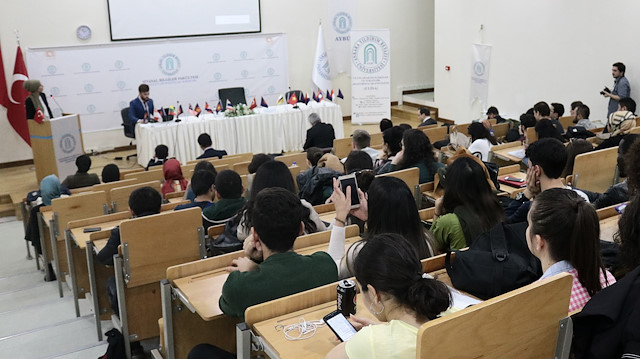
Regional organization wants to create welcome environment in Myanmar where Rohingya might feel safe to go back, says FM
The Association of Southeast Asian Nations (ASEAN) wants to play a leading role in the repatriation of Rohingya refugees living in Bangladesh, a minister said late Wednesday.
“Thailand is the current chair of ASEAN. They are willing to take a leading role in the Rohingya repatriation process,” Bangladeshi Foreign Minister AK Abdul Momen said at a press briefing following a meeting with his Thai counterpart Don Pramudwinai in Dhaka, local media reported.
Pramudwinai had informed Bangladesh authorities that Thailand had sent a delegation to visit villages in Rakhine, but Momen accused Myanmar authorities of taking foreign delegations to villages that were not damaged during atrocities, the daily New Age newspaper reported.
Replying to a question by a journalist on Bangladesh’s proposal to create a ‘safe zone’ in Rakhine for Rohingya, Momen said Pramudwinai agreed with the idea but wanted to use different words as ‘safe zone’ carries certain connotations and some quarters were unwilling to agree with that, the report added.
The Thai minister did not attend the press briefing.
Pramudwinai said ASEAN wanted to create such an environment in Myanmar where Rohingya might feel safe to go back, Momen noted.
- Persecuted people
The Rohingya, described by the UN as the world's most persecuted people, have faced heightened fears of attack since dozens were killed in communal violence in 2012.
According to Amnesty International, more than 750,000 Rohingya refugees, mostly women and children, have fled Myanmar and crossed into Bangladesh after Myanmar forces launched a crackdown on the minority Muslim community in August 2017.
Since Aug. 25, 2017, nearly 24,000 Rohingya Muslims have been killed by Myanmar’s state forces, according to a report by the Ontario International Development Agency (OIDA).
More than 34,000 Rohingya were also thrown into fires, while over 114,000 others were beaten, said the report, titled "Forced Migration of Rohingya: The Untold Experience".
Some 18,000 Rohingya women and girls were raped by Myanmar’s army and police and over 115,000 Rohingya homes were burned down and 113,000 others vandalized, it added.
The UN has also documented mass gang rapes, killings – including of infants and young children – and brutal beatings and disappearances committed by Myanmar state forces.
In a report, UN investigators said such violations may have constituted crimes against humanity and genocidal intent.
Hello, the comments you share on our site are a valuable resource for other users. Please respect other users and different opinions. Do not use rude, offensive, derogatory, or discriminatory language.
The floor is all yours.








